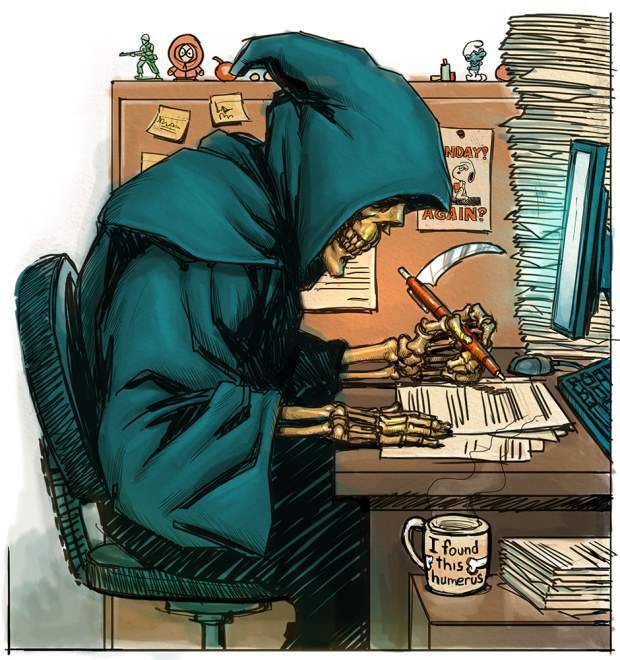Internet Pilgrim

Posts : 471
Reputation : 42
Join date : 2013-02-10
Location : Western Pennsylvania
 |  Subject: Death on Demand: The Right to Life Is Becoming a Duty to Die in Post-Christian Culture Subject: Death on Demand: The Right to Life Is Becoming a Duty to Die in Post-Christian Culture  Fri Jan 15, 2016 3:17 pm Fri Jan 15, 2016 3:17 pm | |
| I have a new article on Preaching Politics:
Death on Demand: The Right to Life Is Becoming a Duty to Die in Post-Christian Culture
It's longer than usual because the topic is so important and so relevant to where we're heading. Here's an excerpt:
- Quote :
In February 2015 the Supreme Court of Canada found a constitutional right to physician-assisted suicide when it struck down that nation’s prohibition against the practice. The Carter v. Canada decision gave Parliament and provincial legislatures a year to craft legislation addressing the issue. By unanimous decision, the Court held that the criminal penalties under review violated the Canadian Charter of Rights and Freedoms, in particular Section 7, by denying individuals the right to control over fundamental life choices, and by causing unnecessary suffering.
In its opinion, the Court stated, “Section 7 is rooted in a deep respect for the value of human life. But s.7 also encompasses life, liberty and security of the person during the passage to death. It is for this reason that the sanctity of life ‘is no longer seen to require that all human life be preserved at all costs.’ (Rodriguez, at p. 595, per Sopinka J.) [Emphasis added] And it is for this reason that the law has come to recognize that, in certain circumstances, an individual’s choice about the end of her life is entitled to respect.”
With these chilling words, the right to life was transformed into a right to death. In finding the prohibition “overbroad” and stating that Parliament still could protect the vulnerable, yet not deprive those seriously ill, suffering and competent of their “rights to life, liberty and the security of the person,” it ruled that the prohibition was “not in accordance with the principles of fundamental justice.” It seems that “justice” also has acquired a new meaning in the progressive wonderland into which we’re venturing.
But the ruling went even farther. It also overturned the portion of the law stating, “No person is entitled to consent to have death inflicted upon him, and such consent does not affect the criminal responsibility of any person by whom death may be inflicted on the person by whom consent is given.” By invalidating this provision, the Court in practical terms, also found the right to active euthanasia in the Charter.
Although it gave Parliament a year to pass legislation, should none be forthcoming, it is commonly believed that physician-assisted suicide would be regulated like other “health care” matters, through provincial laws that apply to those health care matters and through standards of the medical profession.[1]
As the year draws to a close on February 6th, in the absence of legislation that fits the Court’s criteria, physician-assisted suicide will be available to “competent adults who seek such assistance as a result of a grievous and irremediable medical condition that causes enduring and intolerable suffering.” Note that it doesn’t require a terminal illness, but only “intolerable suffering” of any type, including psychological pain. Already one province, Quebec, has attempted to address the issue through a provincial law which defines assisted-suicide as part of the “continuum” of health care.
The law in Quebec is problematic for physicians who have moral objections to ending the lives of their patients. It requires all doctors either to give the requested fatal treatment or to make a referral to another doctor who will. And Saskatchewan’s College of Physicians and Surgeons just published a draft ethics policy requiring any physician with a moral objection to refer patients to another doctor for all “legally permissible and publicly-funded health services” (including euthanasia) and if no other doctor can be found, the policy requires the original doctor to comply, “‘even in circumstances where the provision of health services conflicts with physicians’ deeply held and considered moral or religious beliefs.’ In other words, a willingness to kill patients who want to die may soon become necessary to practice medicine in Canada.”

This decision opens the door to euthanasia as it’s practiced in the Netherlands and Belgium, where psychiatrists can fatally inject those who are mentally ill, and general practitioners can end the lives of those tired of living, or those with disabilities. Here in the U.S. the organization, Compassion and Choices (previously known as the Hemlock Society) has lauded the decision, and although previously they’ve publicly advocated for assisted suicide only in terminal cases, they’ve never criticized the Canadian decision for going too far. Instead, they’ve begun to hint that the right should be expanded to Alzheimer’s patients who cannot decide for themselves. The organization’s head stated that, “it is an issue for another day but is no less compelling” than legalizing euthanasia for the competent terminally ill.
Will a Canadian-style decision be coming to the U.S.? Probably. Cases have been filed in New York, California and New Mexico where state Supreme Courts have found a constitutional right to die in each of their own constitutions. The last time the U.S. Supreme Court looked at the issue, in 1997, they found no such right, in a 9-0 decision. But the Canadian court ruled the same way in 1992. And as national columnist Wesley Smith has noted, “Twenty-two years ago, there was no right to assisted suicide in Canada. Now, with the flip of a judicial switch, there is a right to active euthanasia. The Canadian Charter of Rights and Freedoms didn’t change during that time. The arrogance of judges did.”[2] That concept is something we’re very familiar with in the United States.
Please comment, and thanks in advance to all who read it & do so.
| |
|





